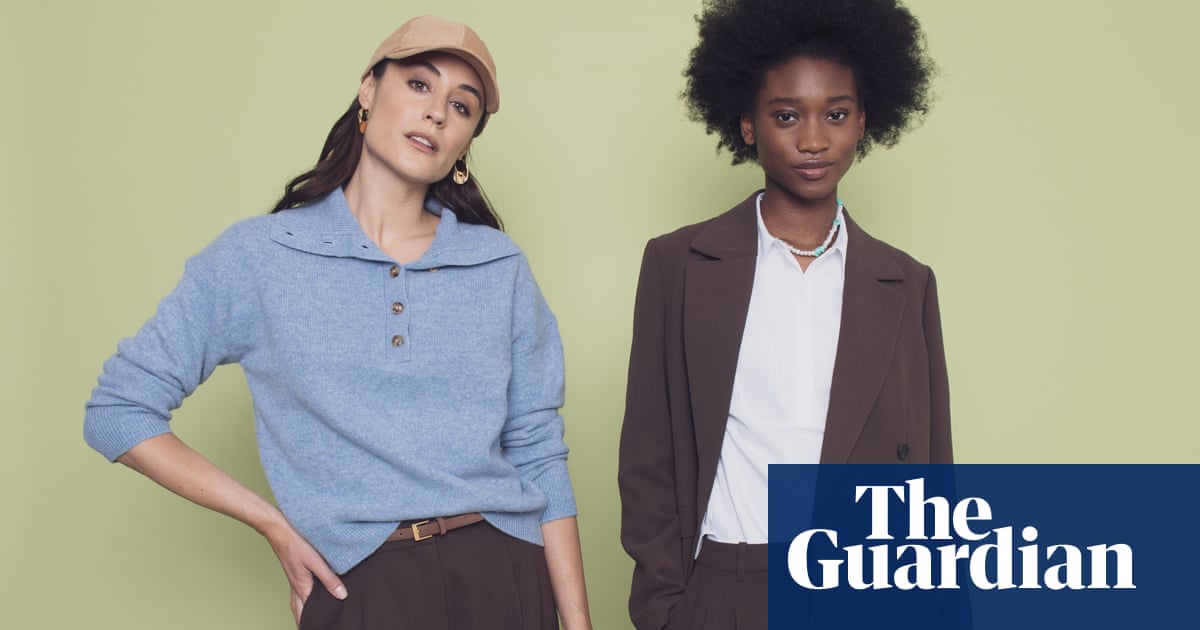I’m sureayahuascais probably really great, but have you ever experienced the absolute rush you get when you have prepped a whole week’s worth of outfits in advance? No? Oh, then you haven’t lived. The thrill of it. The next-level smugness. The whole 10 minutes extra in bed every morning. The self-belief that comes from knowing you have nailed a killer look for the meeting you are dreading on Wednesday afternoon. This is what invincibility feels like, my friends.
I’m not saying spontaneity is overrated, not exactly. Just that it has its place. And flicking through clothes hangers on a dark Monday morning when your phone is popping with work emails is not that place. There has always been a lifestyle trend for prepping meals, and it is rapidly advancing into fashion.Batch cookingis in vogue. TikTok is now full of uncannily wholesome looking influencers (possibly AI-generated: “Siri, make a perfect human being”) holding Tupperware boxes filled with colourful diced vegetables, as if proudly carrying a Fendi baguette bag. Meal planning for the week has a whole heap of advantages. It works out cheaper, you make healthier choices than you would in the moment, and it makes life simpler at the end of a busy day.
Meal prep for your wardrobe is every bit as good. It is about much more than just the lie-in time, nice though that is. The act of mapping out what to wear for each day is, I find, a super effective way of getting a handle on what your week looks like and spotting potential diary clashes and other scheduling banana skins before they get a chance to trip you up. Also, being able to visualise yourself on Friday afternoon gives a nice feeling of the end of the week being in sight.
And it is so much easier than you think. Or, at least it is if you do it exactly the way I tell you to. The big trick is to have a strict formula in order to whittle down your options. I do the same thing I do when packing a holiday suitcase, which is to decide I’m going to wear either all dresses or all separates. It narrows the horizon in a very useful way. You wear variations on the same template for a week, which streamlines everything – the same coat will work all week, for instance – but you still get variety. So, if you are doing dresses, then for a five-day week you want perhaps four dresses, with the assumption that Thursday will be a repeat of either Monday or Tuesday, depending which is more passably clean and uncreased. With separates, pick out two or three pairs of trousers to be the basis of all five outfits.
Check the weather forecast to gauge the temperature and likelihood of rain. Look at your diary and start with the most challenging day to dress for – if you will be going out for an evening straight from the office, say – and pick an outfit for that, then use that as a template. So, for instance, you might pull out a crisp shirt dress for the tricky day, and a smart blazer to pair with it. Then you can wear the same dress on a less public-facing day with a crew-neck sweater over the top. And the same blazer with a more comfy, laid-back dress on another day.
You’re nearly there! You get the idea. Next, pick shoes. Whichever formula you are using, because the silhouette is essentially similar, you can pick out one, maximum two pairs, that will work for all five days. Then pick a top half formula – that could be five different cotton shirts, with two bright coloured sweaters or cardigans that you can tie around your shoulders. Plus, using knitwear as an accessory has the added benefit of having a warm layer to hand should you get cold.
Two more things, then I’ll let you go. First, don’t wait until Sunday night when the scaries have set in and it feels like a chore. Go do this now. Second, pick the good stuff. We have a tendency to make do, on common-or-garden weekdays, with passable outfits. Don’t do that. Wear your snazzy stuff to cheer up Tuesday. Wear clothes that you love wearing. Instead of saving them for best, use them to make life better. Monday mornings included.
Sign up toFashion Statement
Style, with substance: what's really trending this week, a roundup of the best fashion journalism and your wardrobe dilemmas solved
after newsletter promotion
Hair and make up: Sophie Higginson using Sam McKnight and Victoria Beckham. Models: Alejandra at Mrs Robinson (left) and Bella at Milk. Alejandra wears hat, £58,jumper, £130, andbelt, £38, all Reiss. Earrings, £160,Polène.Trousers, £85, Nobody’s Child.Bella wears jacket, £120, andtrousers, £85 both Nobody’s Child. Top, £125,Me & Em. Necklace, £101.43,Crystal Haze
